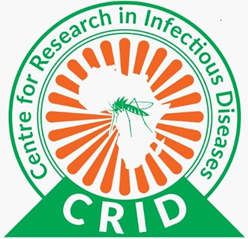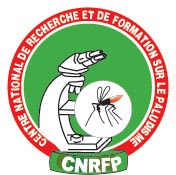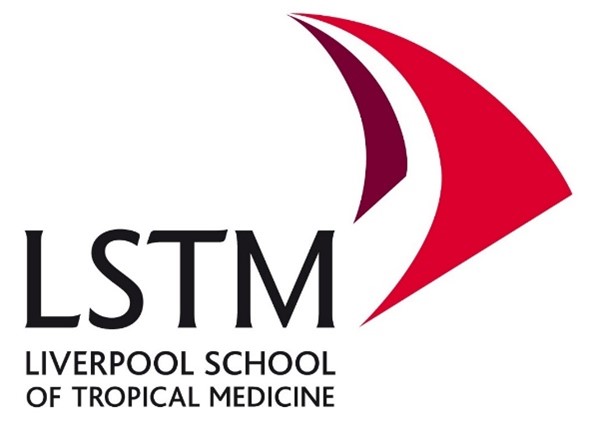

- This event has passed.
Sustainable Vector Biology Research Systems in Africa – Webinar
4 August 2022 @ 12:30 – 14:00
The Royal Entomological Society frequently hosts and advertises UK and international events year-round for people of all stages of interest and career.
Becoming a member entitles you to discounted (and sometimes free) access to the majority of events.

This event is free to attend – Click to jump straight to tickets

Thank you to all who attended this webinar live – Please find the recording below in case you missed it.
Read the Special Issue articles by Medical and Veterinary Entomology here.
A lack of skilled vector biologists impedes our ability to respond to vector-borne disease (VBD) outbreaks and threatens the recent gains made in reducing the burden of many VBDs. Furthermore, the deficit in global policy-making fora of vector biologists with practical experience of vector control can lead to the issuance of inadequate, misguided or outdated advice to control programmes.
The Partnership for Increasing the Impact of Vector Control, a capacity strengthening consortium, has supported a cohort of post-doctoral, doctoral, and master’s level researchers from sub-Saharan Africa to achieve independence and contribute to the next generation of influential vector biologists.
This webinar is a showcase of some of their research.
Confirmed schedule:
12:30: Moses Bockarie – Local scientists should lead the research to fight vector-borne diseases in Africa
12:40:
Tito Tresor Melachio – Environmental mutations in the Campo focus challenge elimination of sleeping sickness transmission in Cameroon
Koala Lassane – Prospects for developing efficient targets for the xenomonitoring and control of<i> Simulium damnosum s.l.</i>, the major vectors of onchocerciasis in Africa.
Marcel Sandeu – Seasonal variation of microbiota composition in Anopheles gambiae and Anopheles coluzzii in two different eco-geographical localities in Cameroon
Francine Sado – Infestation rates, seasonal distribution, and genetic diversity of ixodid ticks from livestock of various origins in two markets of Yaoundé, Cameroon
Kobié Hyacinthe Toé – Multiple insecticide resistance and first evidence of V410L kdr mutation in Aedes (Stegomyia) aegypti (Linnaeus) from Burkina Faso
Simon Sawadogo (pre-recorded) – Lack of robust evidence for a Wolbachia infection in Anopheles gambiae from Burkina Faso
13:30: Justin Pulford – Factors influencing the effectiveness of capacity strengthening programmes – experience from the PIIVeC fellowship scheme
13:40: Hilary Ranson – chair for Q and A

Speakers:

Professor Moses John Bockarie – Guest Editor
Professor Moses John Bockarie joined European and Developing Countries Clinical Trial Partnership (EDCTP) as Director of South-South Cooperation and Head of Africa Office on 1 July 2016. Prof. Bockarie, a Fellow of the Royal College of Physicians of Edinburgh, is a specialist in the field of neglected infectious diseases and an internationally experienced researcher. He has worked in many countries in Africa, Europe and the Pacific region, and in the United States of America. He is the 2016 recipient of the Royal Society of Tropical Medicine and Hygiene Mackay Medal for outstanding work in tropical health. Professor Bockarie is also Chair of the WHO/TDR Scientific Working Group for Vectors, Environment and Society and a member of the WHO Regional Programme Review Group for Neglected Tropical Diseases in the African Region.

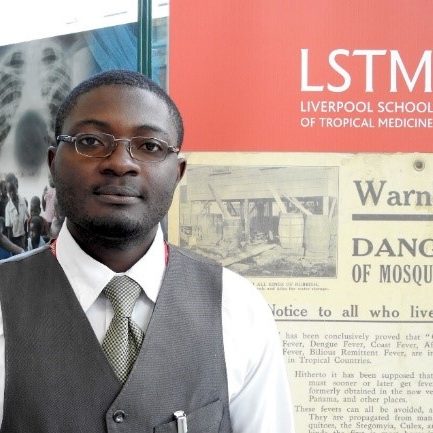
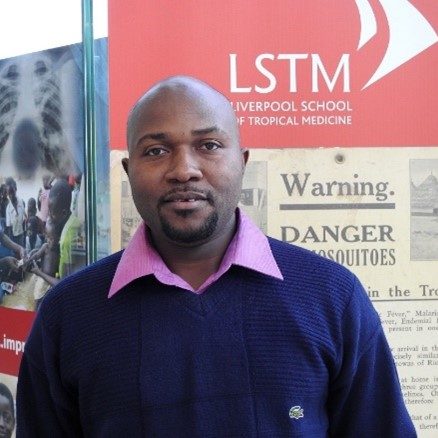
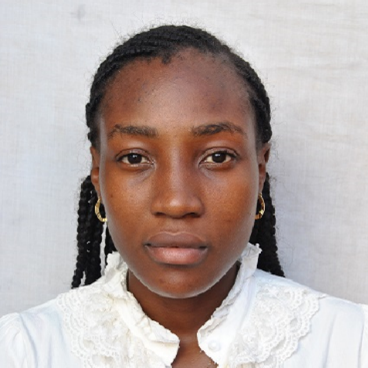
Tito Melachio
Tito Melachio is a medical entomologist based in the Centre for research in Infectious Diseases (CRID) in Yaoundé, Cameroon. He is interested in designing protocols using cheaper tools to fight vector-borne diseases. His current research focus on the use of “tiny targets” for sleeping sickness elimination in Cameroon, especially the impact of these impregnated screens on tsetse fly population densities, their genetic structure and their infection with trypanosomes.
Marcel Sandeu
Marcel Sandeu is based at the Centre for Research in Infectious Diseases (CRID) in Cameroon. He obtained his PhD in December 2016 at the University of Montpellier in France studying the effect of α-AnAPN1 antibodies against field isolates of P. falciparum. During this training, he gained experience in molecular biology, Plasmodium detection by real-time PCR, Plasmodium genotyping and sequencing, experimental infection and transmission-blocking vaccine. For his postdoc studies, he studied the correlation between the molecular basis of resistance and genetic structure of Anopheles funestus. As part of PIIVeC, he is studying interactions between Anopheles mosquitoes, their microbiome and the plasmodium they transmit.
Francine Sado
Francine Sado has a Bachelor and a Master’s degree in Clinical Biology at the University of Dschang in Cameroon. She completed internships at the virology laboratory of Centre Pasteur of Cameroon (CPC) working on Dengue, Zika and Chikungunya viruses in febrile patients before joining PIIVeC as a PhD student researching neglected arboviruses. This study will help her identify viruses that can possibly emerge or re-emerge, thereby raising the alarm for the establishment of a sustained surveillance system to detect cases, prevent potential outbreaks and implement arbovirus vector control strategies in Cameroon.
This event is free to attend – Click to go straight to tickets

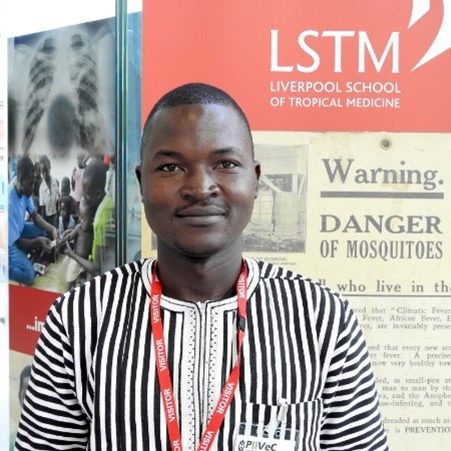
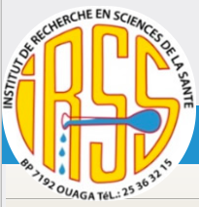
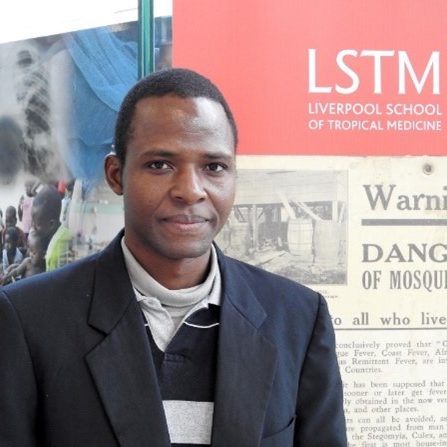
Koala Lassane
Koala Lassane is an early career medical entomologist currently based at the IRSS Bobo Dioulasso. He is particularly interested in the host-seeking behaviour of the insect vectors and how to use these behaviours in a vector-control purpose. He works specifically on blackfly onchocerciasis vectors, from their implication in disease transmission to the improvement of traps for their collection. He has also worked on vectors of malaria and lymphatic filariasis. In the framework of PIIVeC project, his work is to develop vector control tools to complete the onchocerciasis control strategies and achieve the elimination of this disease in Burkina and elsewhere.
Simon Sawadogo
Simon Sawadogo is a medical entomologist at IRSS, Burkina Faso. He specializes in the ecology of speciation as one of the evolutionary forces generating biodiversity. His research activities are focused on ecological studies of phenotypic variation within and between populations of mosquitoes and analyses of genetic and environmental sources of this variation. He is particularly interested in the mating behavior of mosquitoes and mosquito endosymbionts as innovative approaches to control vector borne disease.

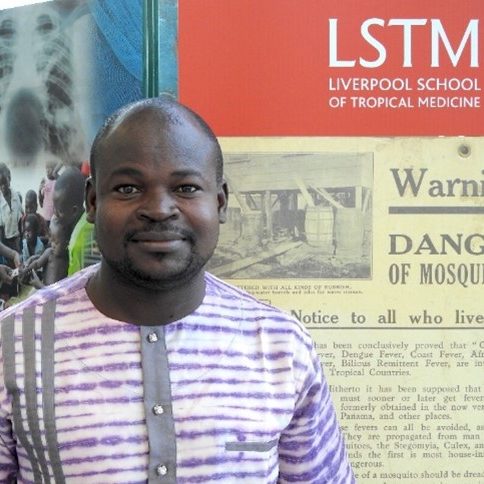
Kobié Hyacinthe Toé
Kobié Hyacinthe Toé is a medical entomologist at the Centre National de Recherche et Formation sur le Paludisme (CNRFP) and currently based in Banfora at the clinical research unit where he is the deputy and managing the entomology team.
He has worked on insecticide resistance monitoring methods, resistance mechanism characterisation, assessment of the impact of insecticide resistance on malaria vector control tools and on the evaluation of new tools. He is now interested to the main arbovirus vector Aedes mosquito where he is investigating adult behaviour, larval ecology, insecticide resistance and control strategies.

Professor Hilary Ranson
Professor Hilary Ranson is the Dean of Research Culture and Integrity Liverpool School of Tropical Medicine and the coordinator of the PIIVeC consortium.
Hilary’s research activities encompass various aspects related to the control of mosquito vectors of human disease. She has a particular interest in the causes and consequences of insecticide resistance and her group has been using a variety of molecular approaches to study the mechanisms of insecticide resistance in Anopheles and Aedes mosquitoes. Hilary was scientific coordinator of the European Union FP7 collaborative project, AvecNet from 2010-2016 (AvecNet EU) which developed and evaluated new tools for malaria vector control. She is currently leading on two major projects, MIRA and PIIVeC and the lead scientist for LITE.
Justin Pulford
Justin Pulford is a behavioural scientist at the Liverpool School of Tropical Medicine. He completed a PhD in Behavioural Science at the University of Auckland, New Zealand in 2008. Prior to joining LSTM, Justin was a research fellow at the School of Population Health, University of Queensland, Australia on permanent secondment at the Papua New Guinea Institute of Medical Research (PNGIMR), Papua New Guinea (PNG). While on secondment at the PNGIMR, Justin led the outcome and impact evaluation of the PNG National Malaria Control Program for the period 2010-2015 and was head of the PNGIMR’s Population Health and Demography Unit. Justin’s current research activities focus on the design, measurement and evaluation of programmes designed to strengthen research capacity in low and middle-income countries. In addition, he maintains a broad interest in implementation research designed to strengthen health systems, disease control programmes and community-based health improvement initiatives.

Consortium and Funder



Note – We do not provide recordings of events or presentations as standard, unless otherwise stated.

Free to attend, but registration required – Book your space below.
148 people are attending Sustainable Vector Biology Research Systems in Africa – Webinar
Who's coming?
148 people are attending Sustainable Vector Biology Research Systems in Africa – Webinar


